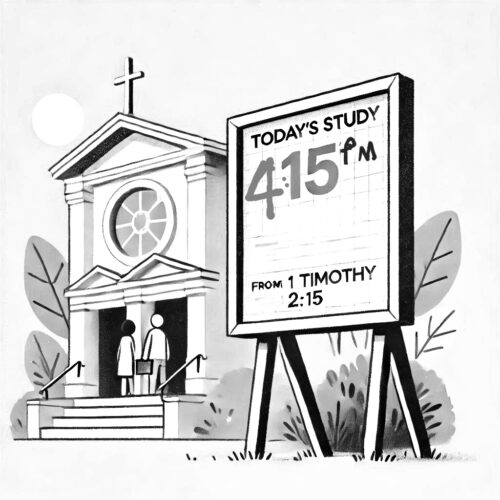Lustful Thoughts: How Does a Godly Christian Handle Them?
Managing lustful thoughts is an age-old struggle that even the most devout Christians battle against. Our sexuality is a powerful force, designed by God for intimacy within the covenant of marriage. But when misguided, it can breed mental anguish and spiritual torment. How does a follower of Christ handle the insistent tug of lust? Scripture provides critical guidance:
Understanding Lust’s Origin: Jesus gets to the heart of lust’s corrosive nature: “Everyone who looks at a woman with lustful intent has already committed adultery with her in his heart” (Matthew 5:28). Lust represents a fundamental disordering of God’s design for sex. It objectifies and dehumanizes others, reducing them to objects for selfish gratification. This toxic desire springs from our fallen human nature (James 1:14-15)—the lingering impulses of the flesh that war against the spirit (Galatians 5:16-17).
Taking Thoughts Captive: While biological realities make occasional lustful thoughts nearly unavoidable, the Bible does warn us we are accountable for controlling our thought lives. Paul instructs believers to “take every thought captive to obey Christ” (2 Corinthians 10:5). Job exemplified this, making a covenant to resist gazing lustfully (Job 31:1). We cannot allow our minds to entertain, coddle or fixate on sexually immoral thoughts. They must be immediately rejected and replaced with whatever is pure and praiseworthy (Philippians 4:8).
Fleeing Temptation’s Lure: Scripture’s antidote for lust is radical flight. “Flee from sexual immorality,” Paul exhorts (1 Corinthians 6:18). Like Joseph with Potiphar’s wife, we cannot linger or rationalize, but must physically remove ourselves from temptation’s path. This may mean installing internet filters, committing to accountability, or making lifestyle changes to sever streams feeding lust’s undercurrent. We cannot toy with or negotiate with this sin; we must flee instantly whenever it rears its head.
Mortifying Fleshly Desires: The battle against lust is fundamentally one of warring against the lingering malignant desires within us that incite immoral cravings. We must be willing to “put to death” and “make no provision for the flesh” (Romans 8:13, 13:14). This necessitates ruthless spiritual self-discipline—waking up before dawn to soak in Scripture, fasting, fervent prayer and repentance. Only by continuously starving carnal impulses and crucifying fleshly passions can we weaken lust’s grip.
Renewing the Mind: In tandem with slaying lust’s seeds, we must marinate our minds in truth to displace the lies lust proliferates. “Be transformed by the renewal of your mind,” Paul urges (Romans 12:2). We actively renovate our thought patterns by saturating in God’s Word, fixed on “whatever is true, honourable, just, pure, lovely, commendable, excellent, worthy of praise” (Philippians 4:8). As we steadily realign our minds with Christ’s, lust’s allure atrophies.
Pursuing Holiness Deliberately: Resisting lust demands radical intentionality about holiness. We cannot passively expect lustful thoughts to dissipate, but must actively “strive for…the holiness without which no one will see the Lord” (Hebrews 12:14). This means eliminating anything toxic feeding the ailment—repulsive media, gossip, even certain friends if necessary. Making a “covenant with our eyes” like Job (Job 31:1) requires militant obedience.
Ultimately, overcoming lust’s scourge is an intentional, surgical process enabled by God’s spirit. As we transfer our cravings to Christ and zealously bathe our minds in truth, lust’s lies disintegrate. It is an arduous journey of killing sin’s seeds, but the freedom of pure, holy living promised to those who “walk by the Spirit” makes it infinitely worthwhile (Galatians 5:16).
Related Reads:
Editor's Pick
The Cornerstone Metaphor and Jesus: What’s the Crucial Connection?
VITAL SALVATION LESSONS FROM THE PARABLE OF THE TENANTS (MATTHEW 21) The Cornerstone Metaphor and Jesus: Imagine a single stone [...]
Are Angels Real? Reformed Views on the Spirit Messengers
Angels exist in our collective imagination as ethereal, winged creatures floating on clouds, strumming harps, or dramatically intervening in human [...]
Feminism’s Impact on Biblical Womanhood: Blessing, Curse, or Both?
Feminism’s Impact on Biblical Womanhood: The feminist movement emerged from legitimate pain—of women silenced, overlooked, and systematically marginalised in both [...]
Life After Death: Can Our Deceased Loved Ones See Us Now?
Grief creates a profound ache—a longing to reconnect with those we've lost. Many Christians wonder: Can our deceased loved ones [...]
Conspiracy Theory: Were Early Christian Writers Seeking Power?
*Editor’s Note: This post is part of our series, 'Satan’s Lies: Common Deceptions in the Church Today’… Were early Christian [...]
Did Jesus Really Die On the Cross? Medical Proof Vs the Swoon Theory
*Editor’s Note: This post is part of our series, 'Satan’s Lies: Common Deceptions in the Church Today’… DID JESUS REALLY [...]
‘Saved Through Childbearing’: What Does 1 Timothy 2:15 Mean?
Ancient Ephesus, with its temple to Artemis and its deeply entrenched pagan beliefs about childbearing and feminine power, provides the [...]
Why Can’t There Be Forgiveness Without the “Shedding of Blood”?
Hebrews 9:22 Explained The question haunts the modern mind: why would a loving God require blood for forgiveness? In ancient [...]
Praying in the Spirit: How the Holy Ghost Empowers Our Prayer Life
Ever sat down to pray and felt like you're just talking to the ceiling? If you're not a believer in [...]

Which Saves the Believer: Christ’s Life, Death, or Both?
Which Saves: Christ’s Life, Death or Both? Throughout church history, Christians have pondered the relationship between Christ's perfect life and [...]
SUPPORT US:
Feel the Holy Spirit's gentle nudge to partner with us?
Donate Online:
Account Name: TRUTHS TO DIE FOR FOUNDATION
Account Number: 10243565459
Bank IFSC: IDFB0043391
Bank Name: IDFC FIRST BANK















